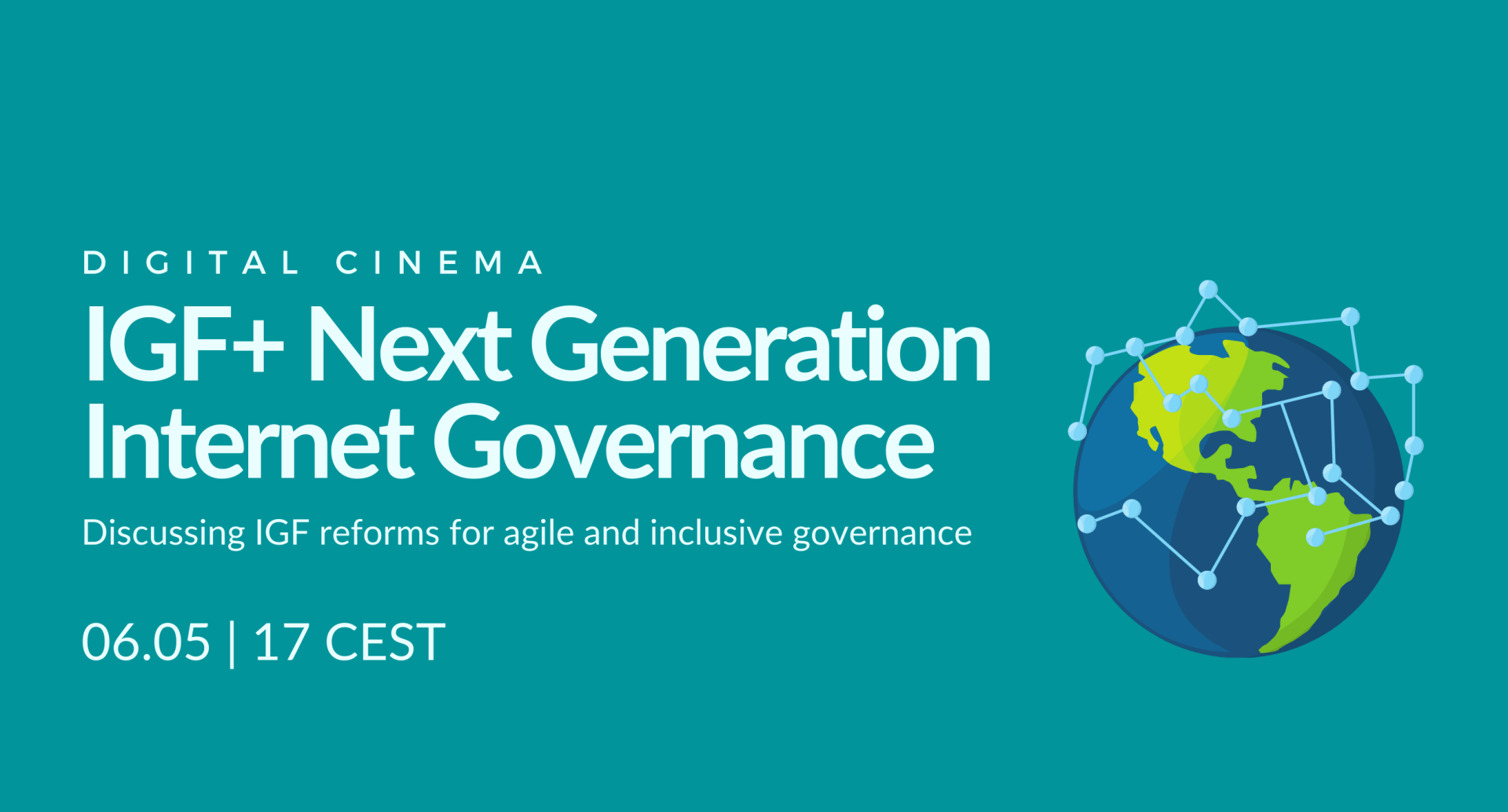ABOUT
Enhancing Internet governance requires multiple actions and reforms to make it more responsive and relevant to current digital issues, in particular, to ensure that technology is harnessed for good, seek the opportunity to manage its impact and ensure that it presents a level playing field for all. The role of the IGF+ becomes key on digital issues, but also it will face some important challenges. For instance, it will need to address how to ensure the cooperation and participation of different stakeholders (business, academia, civil society and technical organisations) that will help to respond to digital issues and evaluate trade-offs as they emerge. Another challenge is to overcome the silos between technical knowledge, civil society and policymakers, which can be critical for adopting and implementing policies. In particular, it will be essential to address how to strengthen institutional links between the IGF+ and the UN for an effective action. Not less important will be the discussion around the ways to ensure participation, and concrete policy recommendations and the tools that must be implemented to achieve the goals sought. Join us on a discussion about the IGF+ reforms towards an agile and inclusive internet governance.
SPEAKERS
Jorge Cancio is Deputy Head of the International Relations Team at the Federal Office of Communications (OFCOM), Switzerland. As such he has managerial and coordination duties and represents Switzerland in a number of international fora and processes related to Internet Governance and Digital Cooperation (notably UN, UN Commission on Science and Technology for Development (CSTD), UN IGF, EuroDIG, Council of Europe Expert Groups, European Union High Level Group on Internet Governance, the UN High Level Panel on Digital Cooperation and follow-up work, the Geneva Internet Platform, or the Swiss IGF). Amongst his duties, he acts as Swiss Representative within the Governmental Advisory Committee (GAC) to the Internet Corporation for Assigned Names and Numbers (ICANN), where he currently is one of the Vice-Chairs. Prior joining OFCOM in 2015, Mr. Cancio held different positions within the Spanish Administration, in the fields of Copyright, Internet Law and Policy, including Internet intermediary liability, Open Data, Internet Governance, and Telecommunications. He holds a law degree from the Universidad Autónoma de Madrid as well as an LL.M. from the Benjamin N. Cardozo Law School, New York. Mr. Cancio is fluent in Spanish, English and German, and has a working knowledge of French.
Prof. em. Dr. Wolfgang Kleinwächter is Professor Emeritus of Internet Policy and Regulation at Aarhus University. He is a member of the Global Commission on Stability in Cyberspace (GCSC) as well as a former member of the ICANN Board of Directors and Special Ambassador of the NetMundial Initiative (NMI). He is a long-time participant in international negotiations on Internet Governance (ICANN, WSIS, UN, ITU, G7, EU and IGF). He served as a member of the UN Working Group on Internet Governance (2003 - 2005), as personal advisor to the chair of the UN Internet Governance Forum, Nitin Desai (2005 - 2010), as chair of the "Cross Border Internet Expert Group" of the Council of Europe (2009 - 2011). He is the founder and chair of the Summer School on Internet Governance (SSIG). He also founded and acted as first Chair of the IGF Dynamic Coalition on Internet of Things (DC.IOT@IGF). He was a member of the government delegations of Denmark at the UN World Summit on the Information Society/WSIS (Tunis 2005) and Germany at the ITU World Conference on International Telecommunication/WCIT (Dubai 2012). He is the author of numerous publications and has been invited as an expert at hearings in the European Parliament and the German Bundestag. He has been awarded the eco Internet Award in 2012.
Sorina Teleanu is an independent consultant with expertise in Internet governance and digital policy. Sorina previously worked with DiploFoundation as Digital Policy Senior Researcher, and with the Romanian Parliament, as advisor dealing with ICT-related legislation and policies. Between 2011 and 2016, she served as the alternate representative of the Romanian Government to ICANN’s Governmental Advisory Committee. Sorina also served as the Chair of the Executive Committee of the South Eastern European Dialogue on Internet Governance (SEEDIG), and was a member of the Multistakeholder Advisory Group (MAG) which provides advice to the UN Secretary-General on the programme and schedule of the Internet Governance Forum (IGF) meetings. She has been a long-time volunteer to the IGF Secretariat and EuroDIG, and also worked as a fellow and consultant at the IGF Secretariat. Sorina is an alumna of DiploFoundation’s Internet Governance Capacity Building Programme, ICANN’s Fellowship Programme, the Internet Society’s Next Generation Leadership programme, and the European Summer School on Internet Governance. Her educational background is in international relations and European studies, having received a bachelor and a master's degree from the Lucian Blaga University in Sibiu, Romania.
SHARE
Read More


Watch Our Episodes





